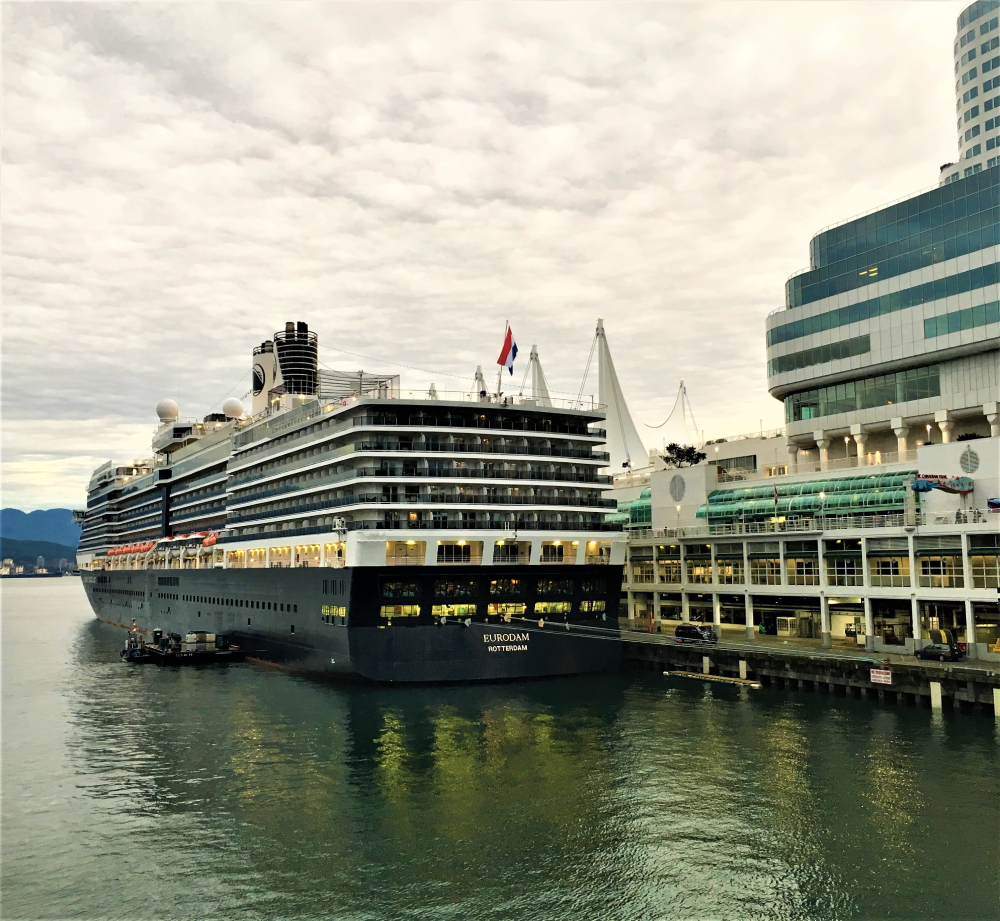A temporary change proposed in the United States to shipping laws could lead to a long-term decline in British Columbia’s cruise ship industry, BC Liberals warned in the provincial legislature Tuesday.
“Tourism operators are hanging on by their fingernails already and desperately looking forward to better days ahead,” said Michael de Jong, the MLA for Abbotsford West. “Those better days are now facing an entirely new challenge.”
Referring to a bill that Alaska senators Lisa Murkowski and Dan Sullivan, both Republicans, introduced in the U.S. Congress earlier in March, de Jong asked, “What assurance has the premier received from Alaska... that rule changes allowing cruise ships to entirely bypass B.C. ports will not become permanent?”
Under the U.S. Passenger Vessel Services Act, which has been in place since 1886, foreign-flagged vessels travelling from one U.S. port to another have to stop outside of the country or pay a US$798 per passenger fine.
That’s a key reason why cruise ships — which tend to be registered in countries like Liberia, Panama, the Bahamas and Bermuda to avoid U.S. taxes, regulations and labour laws — travelling from Seattle to Alaska make stops in Victoria, Vancouver and other Canadian ports.
In 2019, there were 265 cruise ship visits to Victoria. With visits cancelled in 2020, the Greater Victoria Harbour Authority estimated the city’s economy would miss out on $130 million. There were 288 cruise ship visits to Vancouver in 2019.
If the senators’ Alaska Tourism Recovery Act passes, it would mean trips between Washington state and Alaska would be deemed “foreign” and the operators would be excused from the requirement to stop in Canada.
Though there has long been opposition in Alaska to the federal shipping rules, according to the senators the bill is a response to the Canadian government’s decision due to the COVID-19 pandemic to ban cruise ships in Canadian waters until Feb. 28, 2022.
Omar Alghabra, Canada’s minister of transport, recently extended the ban on cruise ships carrying more than 100 passengers. His announcement read, in part, that “cruise vessels in Canadian waters pose a risk to our health-care systems.”
The ban would allow public health authorities to focus on the most pressing issues, including the vaccine rollout and new COVID-19 variants, the announcement said.
The U.S. Centers for Disease Control and Prevention also warns that “the risk of COVID-19 on cruise ships is very high” and advises against travel on them. During the pandemic there have been COVID-19 cases on more than 40 cruise ships, including significant outbreaks on the Diamond Princess, which had 712 cases and 13 deaths, and the Ruby Princess, which had at least 852 cases and 28 deaths.
The senators’ bill says the exemption would apply only as long as Canada’s prohibition on cruise ships is in place, but that didn’t stop the BC Liberals from suggesting the change could become permanent, a concern the Association of Canadian Travel Agencies has also expressed.
Tourism, Arts, Culture and Sport Minister Melanie Mark responded to the questions in the legislature Tuesday by pointing out that the federal government, not the province, is in charge of Canada’s borders.
“We are working with the federal government to advocate for a robust return to cruise ships and other industries when it’s safe to do so,” Mark said. “What we are doing in British Columbia is advocating for the vaccination rollout, for people to be safe and then to open up the borders.”
As Brian Payton reported for The Tyee a year ago, observers have cautioned against helping out the cruise industry.
“From the beginning, [the industry] was not directed primarily by American citizens, it was never meant as a source of income for American citizens, and it still continues to be an industry that is largely run offshore,” said Ross Klein, a sociology professor at Memorial University in Newfoundland. “That’s not an American company — that’s a tax shelter.”
Klein said industry associations tend to exaggerate the economic benefit to host ports, and the Canadian and British Columbian governments would be wiser to look for ways to rebuild a tourism industry that’s less reliant on “disease-carrying” ships. ![]()
















Tyee Commenting Guidelines
Comments that violate guidelines risk being deleted, and violations may result in a temporary or permanent user ban. Maintain the spirit of good conversation to stay in the discussion.
*Please note The Tyee is not a forum for spreading misinformation about COVID-19, denying its existence or minimizing its risk to public health.
Do:
Do not: